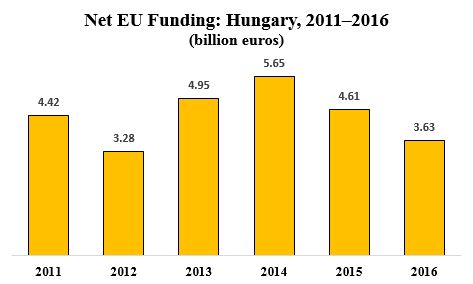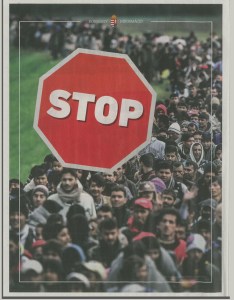The government of Prime Minister Viktor Orbán conducted intensive propaganda in preparation for the Fidesz–Christian Democratic People’s Party (KDNP) campaign for the May 23–26 European Parliament (EP) election. The slogan of the propaganda campaign was “For us, Hungary is first!” (Nekünk Magyarország az első!).
The objective of these propaganda actions was to mobilize support for Fidesz-KDNP in the EP election by portraying the party alliance as the only political force in Hungary that would prevent the European Union from carrying through with its purported plan to resettle migrants in EU member states with help from Hungarian-American investor and philanthropist György/George Soros and his NGOs.
The Orbán-government propaganda focused on the threat that Muslim migration to Hungary would allegedly pose to the country’s internal security and Christian culture.
This preliminary propaganda consisted of eight distinctive actions that took place during a three-month period from early January to early April. Below are descriptions of each of these eight stages in the Orbán government’s preparation for the 2019 EP election campaign.
Stage 1: Request for Campaign Donations

click to enlarge
On January 3, Prime Minister Orbán sent letters to Fidesz-KDNP supporters throughout Hungary requesting donations to help the party alliance finance its political campaign for the EP election (source in Hungarian).
Fidesz-KDNP has not revealed how money Prime Minister Orbán’s request for donations generated for the party alliance’s 2019 EP election campaign.
Below is an Orange Files translation of Prime Minister Orbán’s 2019 request for donations:
Esteemed Compatriots!
I am writing to You because we are standing before a historically significant European Parliament election. This March, the stakes will be higher than they have ever been before.
See entire post.
—————————————————————————————————————————————–







